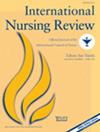A systematic review and sequential explanatory synthesis: Artificial intelligence in healthcare education, a case of nursing
Abstract
Aim
This review aims to explore the impact of artificial intelligence (AI) on knowledge acquisition, skills development, and attitudes among nursing students.
Background
AI offers hopeful opportunities to enhance learning experiences and prepare future healthcare professionals.
Methods
This was a sequential explanatory mixed-method systematic review. This review was conducted in line with the Preferred Reporting Items for Systematic Reviews and Meta-Analyses (PRISMA) guidelines. A comprehensive electronic database was searched to identify relevant studies. Eligibility criteria were studies examining the impacts of AI interventions on nursing students’ knowledge, skills, or attitudes. The methodological quality of the studies was assessed using the mixed-method appraisal tool.
Results
Nine research articles were included in the review. These studies utilized both quantitative and qualitative methodologies to examine the impact of AI on nursing students. Quantitative studies found positive relations between AI interventions and knowledge acquisition, skills development, and attitudes toward AI among nursing students. Qualitative findings revealed the positive outcomes of AI in fostering learning engagement, self-efficacy, and confidence.
Conclusions
AI shows potential for supporting knowledge acquisition, skills development, and fostering positive attitudes among nursing students.
Implications for nursing practice and nursing policy
AI-driven interventions enhance nursing education by improving clinical decision-making, confidence, and knowledge acquisition. By integrating AI, nurse educators can develop more interactive, personalized, and impactful learning environments that may help students with the complexities of contemporary healthcare. Policies, standardized guidelines, and faculty development programs may be developed that can promote ethical AI integration, equitable access, and faculty training. These changes can be considered essential to maximize AI's benefits.


 求助内容:
求助内容: 应助结果提醒方式:
应助结果提醒方式:


